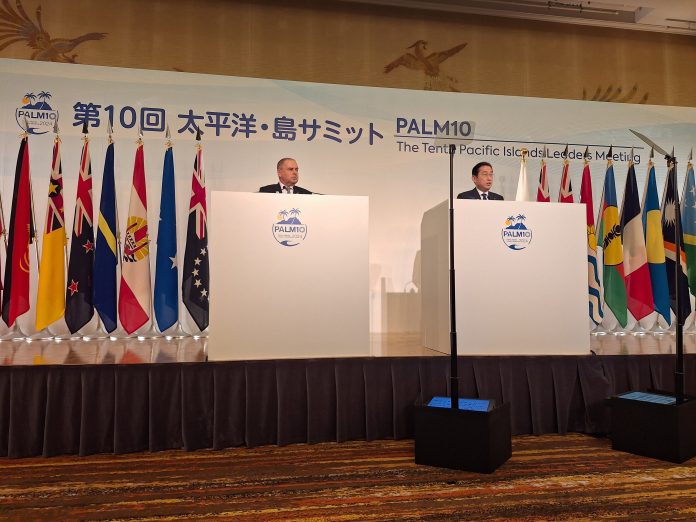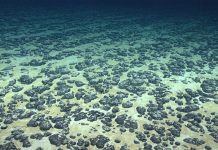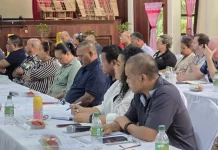In a significant meeting convened to address the controversial issue of Japan’s treated nuclear wastewater discharge into the Pacific Ocean, a consensus was reached among Pacific leaders and Japan.
This was confirmed by Cook Islands Prime Minister and Chair of the Pacific Islands Forum (PIF) Mark Brown, after the conclusion of the PALM10 Summit in Tokyo on Thursday.
The discussions centered on the release of Advanced Liquid Processing System (ALPS) treated water from TEPCO’s nuclear power station into the Pacific Ocean.
Prime Minister Fumio Kishida of Japan assured the Forum that the discharge was being conducted in compliance with international safety standards and practices.
He emphasised Japan’s commitment to ongoing collaboration with the International Atomic Energy Agency (IAEA) to ensure the process’s safety and transparency.
“The discharge is in line with relevant international safety standards and practices, and we will continue to work closely with the IAEA,” Kishida stated.
Recognising the shared commitment to safeguarding the health, environment, and marine resources of the Pacific region, PIF leaders acknowledged Japan’s assurances.
They emphasised the need for Japan to continue providing sincere and transparent explanations to the Pacific Island countries.
“This process must be based on scientific evidence and conducted in a highly transparent manner, ensuring it never endangers the wellbeing and livelihoods of the Pacific people or adversely affects human health and the marine environment,” Mark Brown noted.
Japan has also decided to support the development of regional scientific capacity through the IAEA.
PIF leaders have requested that such assistance be delivered through active engagement by the IAEA in the region.
“We appreciate Japan’s commitment to enhancing our scientific capabilities. The IAEA’s involvement will be crucial in ensuring the safety and transparency of this process,” Brown added.
The leaders agreed to keep the ALPS treated water issue as a standing agenda item for the Pacific Islands Leaders Meeting (PALM), supported by an ongoing review process. This decision reflects their dedication to addressing the long-term implications and ensuring continuous monitoring and evaluation.
In the midst of these discussions, Robert Richmond, an independent expert and Research Professor and Director at Kewalo Marine Laboratory, University of Hawaii at Manoa, voiced significant concerns.
He highlighted unanswered questions regarding the efficacy of the ALPS treatment and the contents of the storage tanks containing radioactively contaminated wastewater.
“The long-term effects of this discharge on Pacific marine ecosystems and those who depend on them are still unknown. Even small doses of radiation can cause cancer or genetic damage,” Richmond warned.
He criticised the current monitoring programme as inadequate and poorly designed, failing to protect ocean and human health.
“The discharge, planned to continue for decades, is irreversible. Radionuclides bioaccumulate in marine organisms and can be passed up the food web, affecting marine life and humans who consume affected seafood,” Richmond explained.
Richmond also expressed concerns about the additional stressors already impacting the Pacific Ocean, such as pollution, overfishing, and climate change. He urged Japan to reconsider its approach, suggesting that the nation could transform this challenge into an opportunity for responsible disaster management.
“Japan can set a new direction for handling such disasters, supporting the health of the people of Japan, the Pacific, and the world. True leadership would embrace this unprecedented and critical opportunity,” he said.
As the meeting closed, Prime Minister Mark Brown reaffirmed the PIF leaders’ commitment to addressing the economic challenges facing the Pacific region through innovative and collective approaches.
“To realise the potential of our people and resources, we must explore new strategies and work together to overcome our shared challenges,” he stated.
The consensus reached at this meeting marks a significant step towards ensuring the safety and sustainability of the Pacific Ocean, reflecting a collaborative effort to protect the region’s environment and the wellbeing of its people.













